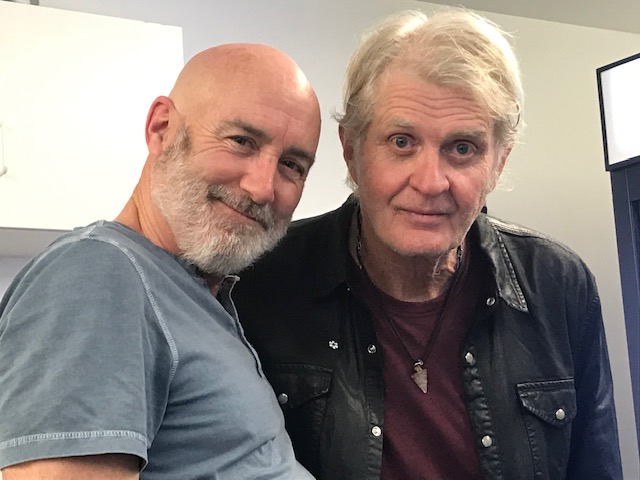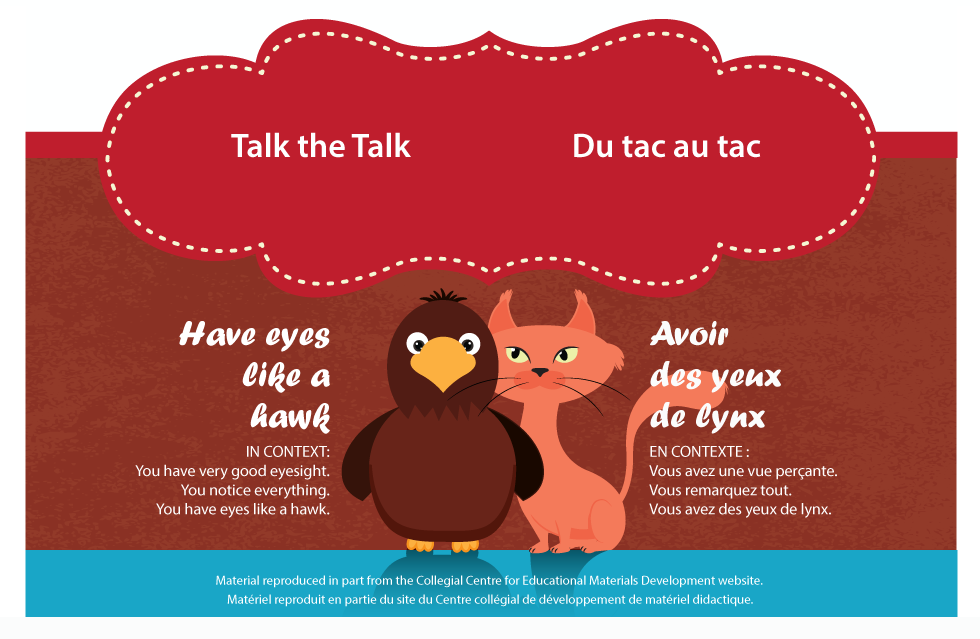- T4 Tax Slips
- Celebrating Black History Month
- February 27 is Pink Shirt Day!
- Effective Email Communications
- A Canadian Walk of Fame Artist in Cambridge Bay
- The Positive Space Initiative
- Lake Restoration Handbook
- Indigenous Learning Series
- Inuktitut Word of the Week - ᖃᓄᐃᑉᐱᑦ
- Are you ready to Talk the Talk?
- Work Being Done at the CHARS Campus
- Key Outcomes from Senior Management Committee
- POLAR Events Calendar
- Workplace Assessment Action Tracker
- POLAR Priorities Update
FROM THE TOP:
T4 Tax Slips
Public Services and Procurement Canada (PSPC) would like to inform you that 2018 T4 tax slips will be available online through the Compensation Web Application on February 22, 2019, as per the department access schedule.
As many POLAR employees do not have access to the Compensation Web Application, T4’s will be emailed and mailed to POLAR staff by March 8, 2019. If you have not received a copy of your T4 by this date, please contact Jamie Dudley at 343-543-0757 or by e-mail at jamie.dudley@tpsgc-pwgsc.gc.ca
If you are registered with Canada Revenue Agency or Revenu Québec online services, also known as MyAccount, your 2018 tax slips will also be available through MyAccount as of March 7, 2019. To sign up, access the links below:
Canada Revenue Agency:
https://www.canada.ca/en/revenue-agency/services/e-services/e-services-individuals/account-individuals.html
Revenu Québec: https://www.revenuquebec.ca/en/citizens/my-account-for-individuals/
For all other questions please contact Jamie Dudley at 343-543-0757 or jamie.dudley@tpsgc-pwgsc.gc.ca
Celebrating Black History Month

Every February, we celebrate the many achievements and contributions of Black Canadians who have done so much to make Canada the culturally diverse, compassionate and prosperous nation it is today.
For 2019, the theme of the Government of Canada's Black History Month campaign is Black Canadian Youth: Boundless, Rooted and Proud.
Check out the various festivities and events that honour the legacy of Black Canadians, past and present, on Canadian Heritage’s website.
Also, during a special learning activity on February 26, the Canada School of Public Service invites you to learn about the important contributions Black Canadians make in shaping Canadian heritage and identity. Learn more here.
February 27 is Pink Shirt Day!
The Government of Nunavut invites you to wear pink on February 27! Pink Day’s theme for 2019 is #BeSomeonesHero, which highlights individuals and groups in schools and communities who make a positive difference by promoting respect, kindness and anti-bullying.
Communities can get involved in a variety of ways:
- wear pink to show your support against bullying;
- hold an anti-bullying assembly;
- make and share a video about the negative effects of bullying;
- invite students and community members to share stories against bullying;
- start a conversation against bullying with family members; and
- take a pledge and show your support by tweeting how you will #BeSomeonesHero.
Join the Government of Nunavut and support Pink Day by visiting www.redcross.ca/PinkMB_NU
Effective Email Communications
Want to improve your email communications? Check out these 14 good practices in email communication:

- Try to reduce the number of emails you are sending, keep them short and to the point, and copy only those who absolutely need to know.
- Avoid sending long emails to explain something. In such cases, use other means such as face-to-face meetings, teleconferences or phone calls to discuss complex subjects.
- Avoid forwarding an email with the whole chain of previous emails related to the subject, unless necessary for context.
- Keep internal messages internal – do not Cc outside contacts on internal emails. Double-check recipients before sending.
- Identify in email header if your email requires follow up. If yes: Write “Action” in email header. If no: Write FYI. For action items, include what action is required and the deadline.
- For email going to managers and that require action, identify your recommended next steps.
- Get approval from your manager before sending messages to outside stakeholders and partners. Approval may not always be required, but it is better to make sure your manager is aware.
- Do you need to “reply all”? Think twice before replying to a large distribution list (but ensure that others who are also working on the file are kept informed).
- Use spell check before sending a message to avoid mistakes.
- Consider using the POLAR “Info Box” to send out messages (especially for information that should come from the organization, and not a person). The info box can also be used to receive emails: info@polar.gc.ca
- Does your message need to be translated or sent bilingually? Check with your manager or with communications@polar.gc.ca.
- Be sure to activate your out of office email message when you are in travel status or on leave.
Note: These messages should be bilingual (in French & English, at minimum) and should clearly indicate your return date and provide an alternate contact name (with email and/or phone #) for urgencies. Please refer to the four examples for some helpful wording, here. - Include your signature block on all external messages.
- Check with your admin to ensure your signature block follows the standard format.
POLAR’S PEOPLE:
A Canadian Walk of Fame Artist in Cambridge Bay
Tom Cochrane meets the CB team!
The Life is a Highway singer visited Nunavut for the first time this week to play at the Kitikmeot Trade Show (KTS), and met the Cambridge Bay team beforehand! Some were luckier than others as one fortunate POLAR employee received a big hug from Tom Cochrane!
During his visit at the CHARS campus, the Winnipeg-born artist seemed well-informed on science and climate change issues and demonstrated a keen personal interest in arctic matters, with genuine warmth, respect and admiration for Inuit culture and resilience.
He thanked the people of Cambridge Bay for their warm hospitality and said he’d like to come back again – maybe in the summer and go char fishing. He teased the audience at the community concert and asked to be invited back for the 40th KTS, saying he’d likely need some mobility assistance and the use of a tele-prompter, but he was game!
CBC covered Tom Cochrane’s passage in Cambridge Bay:
https://www.cbc.ca/news/canada/north/tom-cochrane-cambridge-bay-1.5015718


The Positive Space Initiative
The Positive Space Initiative aims to create an inclusive and diverse workplace throughout Government of Canada departments. This initiative encourages respect and understanding for the LGBTQ2+ colleagues through a network of ambassadors.
Our colleague, Maryse Paradis, has been involved in multiple Positive Space Initiatives (PSI) to promote diversity and inclusivity of the LGBTQ2+ community in the public service workforce. She is a trained ambassador for the PSI and can offer information and resources to those who need it.
How does the Positive Space Initiative work?
The Initiative depends on the participation of volunteers who engage in a 2-hour training to become Positive Space Champions. At the training, they are provided with positive space indicators to display in their workspaces. In addition, the behaviour of the Champions creates positive spaces, including challenging anti-LGBTQ comments, celebrating differences and promoting respect.
What is the role of a Positive Space Champion?
While the participation of senior level leaders from across the federal public service is encouraged to represent their organizations as Positive Space Champions, employees at all levels are welcome to participate.
Who can be a Champion?
While the participation of senior level leaders from across the federal public service is encouraged to represent their organizations as Positive Space Champions, employees at all levels are welcome to participate.
For more information, please contact Maryse Paradis by e-mail at Maryse.Paradis@polar.gc.ca or by phone at 613-292-3534.
Lake Restoration Handbook
Our colleague, Ian Hogg, has recently seen his paper titled “Biodiversity Genomics: Monitoring Restoration Efforts Using DNA Barcoding and Environmental DNA” published in the Lake Restoration Handbook.
In this article, Ian Hogg, in collaboration with other researchers, explores the use of molecular techniques to monitor restoration in New Zealand lakes. The team also studied how DNA sequence data and various barcoding database systems help identify local specimens and assess the community composition, as well as monitor changes over time.
Read the abstract of this chapter here.
LEARNING AND PERFORMANCE
Indigenous Learning Series
On February 19, the Canada School of Public Service, in collaboration with the Canadian Commission for United Nations Educational, Scientific and Cultural Organization (CCUNESCO) and Canadian Geographic magazine, is organizing a panel discussion on the revival of Indigenous languages in Canada.
The panelists will offer their insights on the revitalization and preservation of Indigenous languages and explore the following questions:
- What is meant by mentorship programs?
- What tools and programs are being used and developed (dictionary development and language documentation, app development)?
For more information or to register: Canada School of Public Service
Inuktitut Word of the Week - ᖃᓄᐃᑉᐱᑦ
The Inuktitut word of the week is qanuippit. It means how are you? It is pronounced: ka-nooi-ppit.
Are you ready to Talk the Talk?
An English and French expression with an equivalent meaning

WORKPLACE NOTICES:
Work Being Done at the CHARS Campus

Over the next couple of weeks, a number of EllisDon sub-trades will be on-site to perform some work at the CHARS campus.
Most of this work is expected to occur in the lab and in mechanical areas that are not yet in POLAR’s possession. However, there may also be some work done in the areas we occupy.
Please exercise caution and limit any travel in the corridors from the staff entrance to the office areas. When possible, use the circular staircase in the public area to navigate between levels 1 and 2.
Questions? Contact Chris Chisholm at Christopher.Chisholm@polar.gc.ca
UPDATES:
Key Outcomes from Senior Management Committee
Here are the key outcomes and decisions deriving from the February 6 Senior Management Committee meeting:
- Senior Management received an update on work to launch POLAR’s upcoming Competitive Funding Process. Once launched, questions from prospective applicants should be directed to Gs and Cs to ensure consistent messaging, and Gs and Cs will connect with S&T and KM&E as needed.
- Senior Management briefly discussed potential opportunities to seek advice from the Inuit Qaujisarvingat National Committee (IQNC) for advice in relation to the establishment of a peer review body that would consider relevance of projects in relation to northern priorities as part of POLAR’s Competitive Funding Process.
- An update on CHARS campus research support readiness and lab safety and operational readiness was provided. Work is currently underway to develop occupational health and safety-related policies and procedures and provide associated training.
POLAR Events Calendar

You will find below the latest version of the POLAR events calendar, including upcoming events and conferences for your information.
Note: The calendar is subject to change. Any travel has to be pre-approved by Directors (and above for international destinations).
POLAR events calendar: February 13, 2019
Workplace Assessment Action Tracker
In the spring of 2018, a team of HR professionals conducted a workplace assessment to analyze POLAR’s organizational function. A workplace assessment (WPA) action tracker was then developed based on your feedback.
Everyone has been hard at work addressing the challenges identified in the WPA Report regarding planning, information-sharing and building knowledge. Curious to know which action items are currently in progress or completed? Click here to learn more.
POLAR Priorities Update
The latest Priorities Update document is here! Take a look at your colleagues priorities and activities between February 11 and March 8.